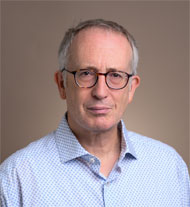Alrosa Breaks its Silence
May 18, 23
We've not heard much from Alrosa of late.
Russia's state-controlled miner has been more or less incommunicado since tanks rolled into Ukraine last February.
I was scrolling through my WhatsApp exchanges with their press office in an idle moment. The edited highlights look like this:
"hello, ALROSA does not comment...."
"no comments )"
"can't comment, sorry..."
"Hello John, no commentaries from our side."
"Sorry, no commentaries for now..."
You can see a theme emerging here. So I was intrigued, and somewhat surprised, to see the company's outgoing CEO, Sergey Ivanov, speaking at length, and with some colorful language, about how Alrosa is faring, its "record sales", the impact (or not) of sanctions, why he's leaving, the possible sale of assets in Africa, declining inventories, falling diamond prices, re-opening of the Mir mine. And more.
It is, it seems, either a famine or a feast when it comes to the world's biggest diamond miner (by volume) revealing anything of its activities.
Ivanov was speaking to Kommersant, the Russian politics and business newspaper, in an interview posted yesterday that runs to almost 3,000 words.
It marks his departure, two years earlier than planned as Alrosa CEO, and the appointment of his successor, Pavel Marinychev, who will serve a three-year term.
There was "no intrigue or hidden agendas" behind him leaving the company, said Ivanov (all quotes translated from Russian).
Six years at the helm was enough, he said, and he felt there was a window of opportunity to step down once the "sanctions issue" had been sorted.
The company has, on paper at least, been blacklisted by the US since last February, but a huge loophole still permits the importation of any Russian diamonds that are cut or polished elsewhere (in India, for example).
Did the sanctions influence his decision to leave?
"No way," he said. "If I had been afraid of sanctions, I would have left in February or March of last year."
Alrosa had worked hard, he said, to rebuild sales channels, and to find ways round banking restrictions.
"It was restless at first, when some Western manufacturers of mining equipment announced the termination of supplies to Russia," he said.
Russia was largely self-sufficient in terms of open-cast mining, but faced more of a challenge for underground operations.
"Western manufacturers tried to bring us to our knees, but, in my opinion, these manufacturers themselves will end up with problems," he said.
Alrosa hasn't published its rough or polished sales figures since January 2022 ($325m), but "sanctions" have had little impact, and it has seen no need to review its production forecasts.
Could he say when Alrosa would start publishing its figures again?
"As long as the current sanctions regime is in place, while our business is being hunted, our partners are being threatened, we do not consider it safe to disclose information," he said.
Which is interesting, because later on in the interview he boasts of the company's transparency.
"The company has become an order of magnitude more manageable and transparent," he said. "Record sales in history, record dividends."
Alrosa is, he says, in good financial shape, despite tough times - "Our clients dropped to a critical level, and the coronavirus pandemic, when jewelry stores around the world closed, and now the sanctions."
Last year was "pretty good" for the global diamond market, he said, but US sales are slow and China's post-lockdown "recovery" has been disappointing.
Prices at tenders have been falling, but Alrosa is, he said, a "stable supplier", and in a down market it tended to get better results than smaller producers.
Alrosa holds a minority stake in Catoca, in Angola, the world's fourth-largest diamond mine, and has been exploring deposits in Zimbabwe in a joint venture with the country's government.
But there is something of a question mark over these projects.
"We are not yet considering the possibility of withdrawing from these countries, although there are certain difficulties with banks," Ivanov said.
Closer to home, re-opening Mir, the high-value, high-grade mine that closed in 2017 after eight people died, was still a possibility, but would depend on market conditions.
It's a wide-ranging interview, which gives a rare glimpse into the world of Alrosa, but it's short on specifics.
No mention of lab growns, no mention of provenance, no mention of many topics that concern the rest of the diamond industry.
No mention either of the fact that Ivanov was personally sanctioned by the US government.
He was classified last February as a Specially Designated National (SDN) by the USA's Office of Foreign Assets Control (OFAC), as was his father Sergei Borisovich Ivanov, described by the US Treasury Department as "reportedly one of Putin's closest allies".
So what plans does Ivanov Jr have for the future? It was reported that he'd be joining the private investment firm Volga Group, owned by Gennady Nikolayevich Timchenko, a billionaire and long-time friend and ally of Russia's president Vladimir Putin.
He was specifically asked about that, and said it was incorrect. Never discussed or planned, he insisted. His plans are in high-tech projects, he said but for the time being he was looking forward to a break from routine.
Have a fabulous weekend.